Former cop calls for better handling of elderly patients after her mother was subdued
A former police officer claims her mother was left bruised and traumatised after an incident in her aged care home. See the shocking pics. Warning: Graphic
National
Don't miss out on the headlines from National. Followed categories will be added to My News.
Exclusive: A former police officer has called for the better handling of elderly patients in aged care homes after claiming her mother was left bruised and traumatised after cops were called to “subdue” her.
The death of Cooma grandmother Clare Nowland – who hit her head after allegedly being tasered by police inside her aged care home – has led former officer Pia Schindler to speak out about her own mother’s alleged treatment at the hands of police.
Police and paramedics were called to the Arcare home in Oatlands in Sydney’s north west on May 1 where Ms Schindler’s 69-year-old mother Lucy has been a resident in their dementia ward for the past five months.
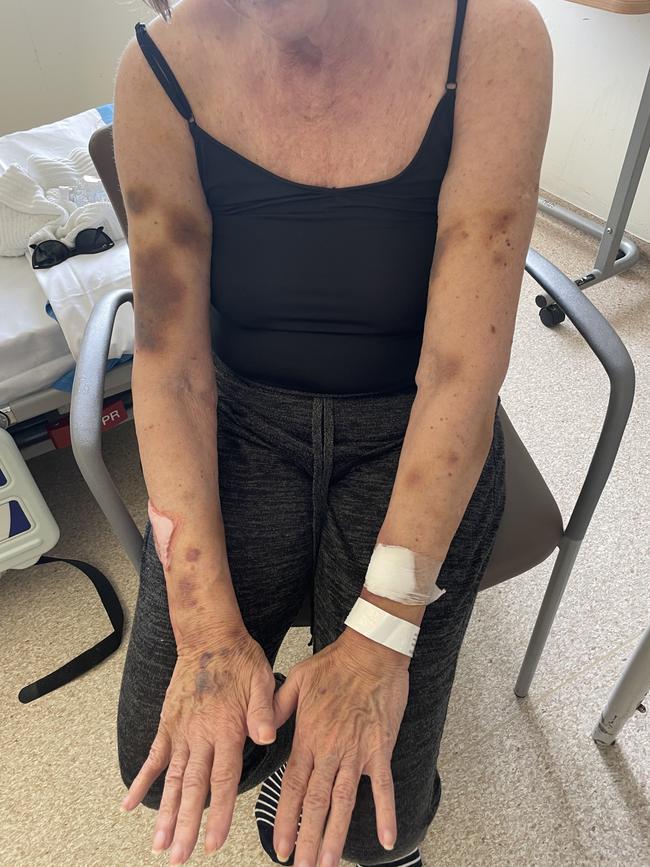
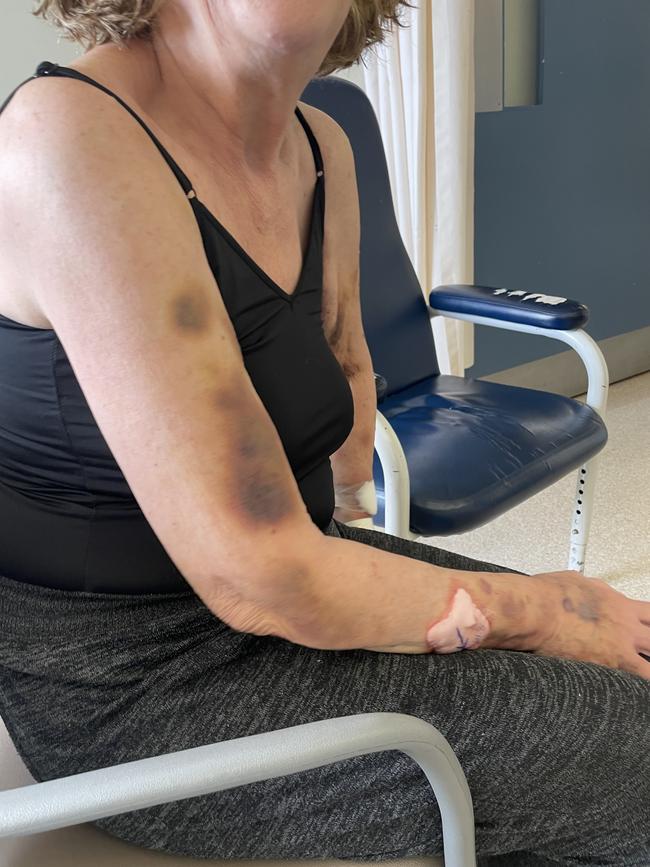
Aged care staff called police and paramedics to subdue an “agitated” Mrs Schindler.
The ordeal left the frail grandmother covered in severe bruising to her arms and legs, requiring hospital treatment.
More than a month after the incident, Ms Schindler said no one has been held accountable for the “trauma and injuries” her mum sustained.
“The aged care staff are not specifically trained in Alzheimer’s, they’re just carers,” the 20-year police veteran said.
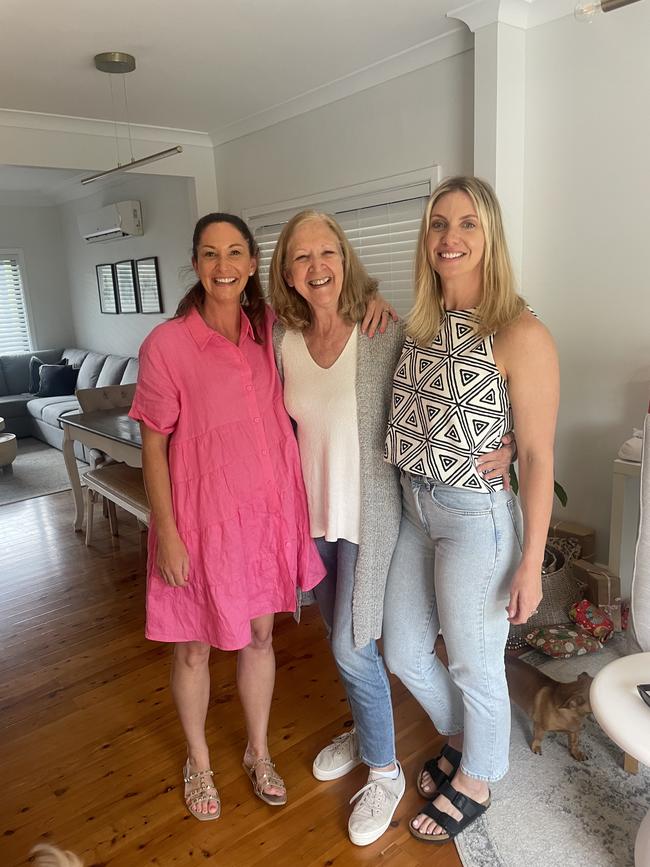
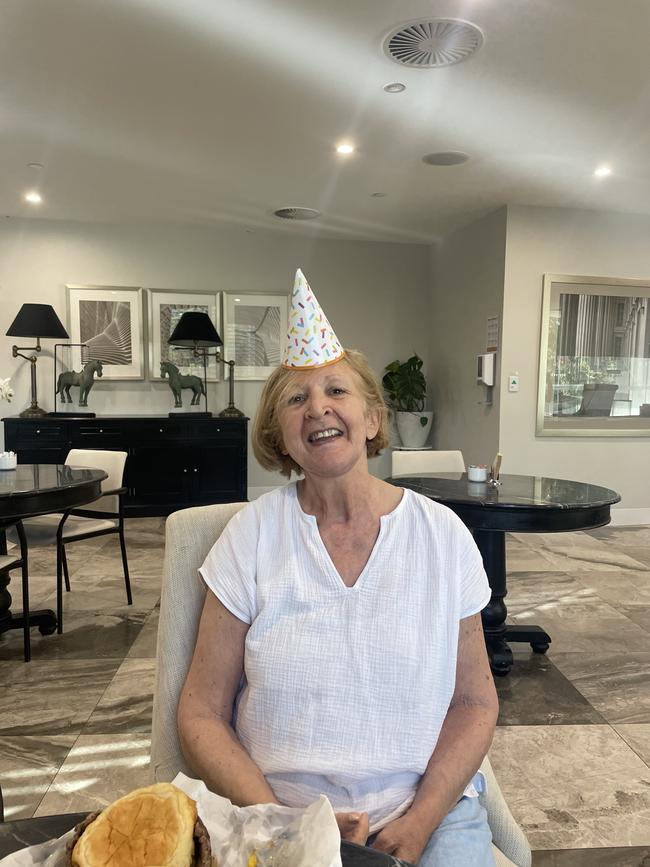
“They can’t identify the escalation of behaviours in the appropriate time to be able to medicate the patient.
“When mum was changing medications and essentially withdrawing, we were advised that the only ones that know about medication changes are the registered nurse and the GP.
“It’s a worry that other staff aren’t informed so they can proactively manage changing behaviours,” she said.
Ms Schindler said she is not blaming the use of force by police, ambulance or care staff towards her mother but believes the recent alleged tasering death of Mrs Nowland and her mum’s incident, has convinced her that reform is needed.
She said staff and police need to be better trained in responding to complex and difficult situations involving dementia sufferers.
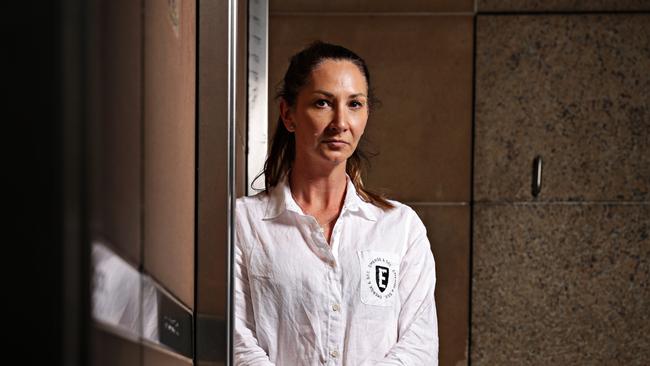
“How does it get to the point that restraints and sedation are the only options?,” she asked.
“If a person is displaying certain behaviours, then they need to get the level of care that needs containment, stabilisation as it represents a risk to themselves and others in a situation that is clearly not coping.”
Australian and New Zealand Society for Geriatric Medicine (ANZSGM) said police involvement should be a “rare occurrence”.
ANZSGM President Dr Rob O’Sullivan said other options include using in-reach models of care that have been developed by hospitals with the input of specialist geriatrics.
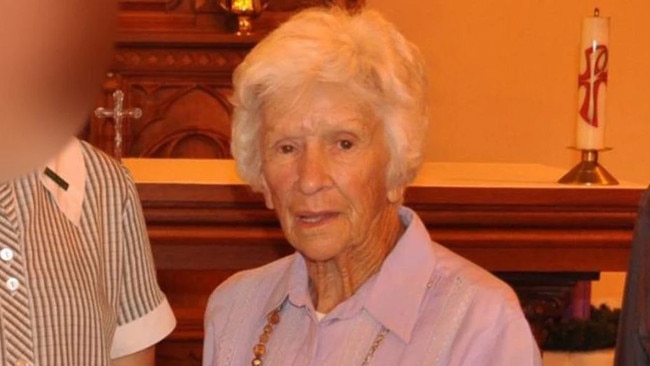
“A number of health districts across Australia have invested in models of care that provide for ‘in-reach’ of these specialist services into Residential Aged Care Homes,” Dr O’Sullivan said.
“However, the development of these models has been patchy across different jurisdictions and is reliant on local champions and a source of funding.
“This is an area where Commonwealth and state governments could co-operate to ensure these types of services are delivered consistently and equitably to all health districts across the country.
“In genuine emergency situations, people living in aged care homes should have the same access to emergency services as other Australians.”
Arcare has declined to comment.
Originally published as Former cop calls for better handling of elderly patients after her mother was subdued





